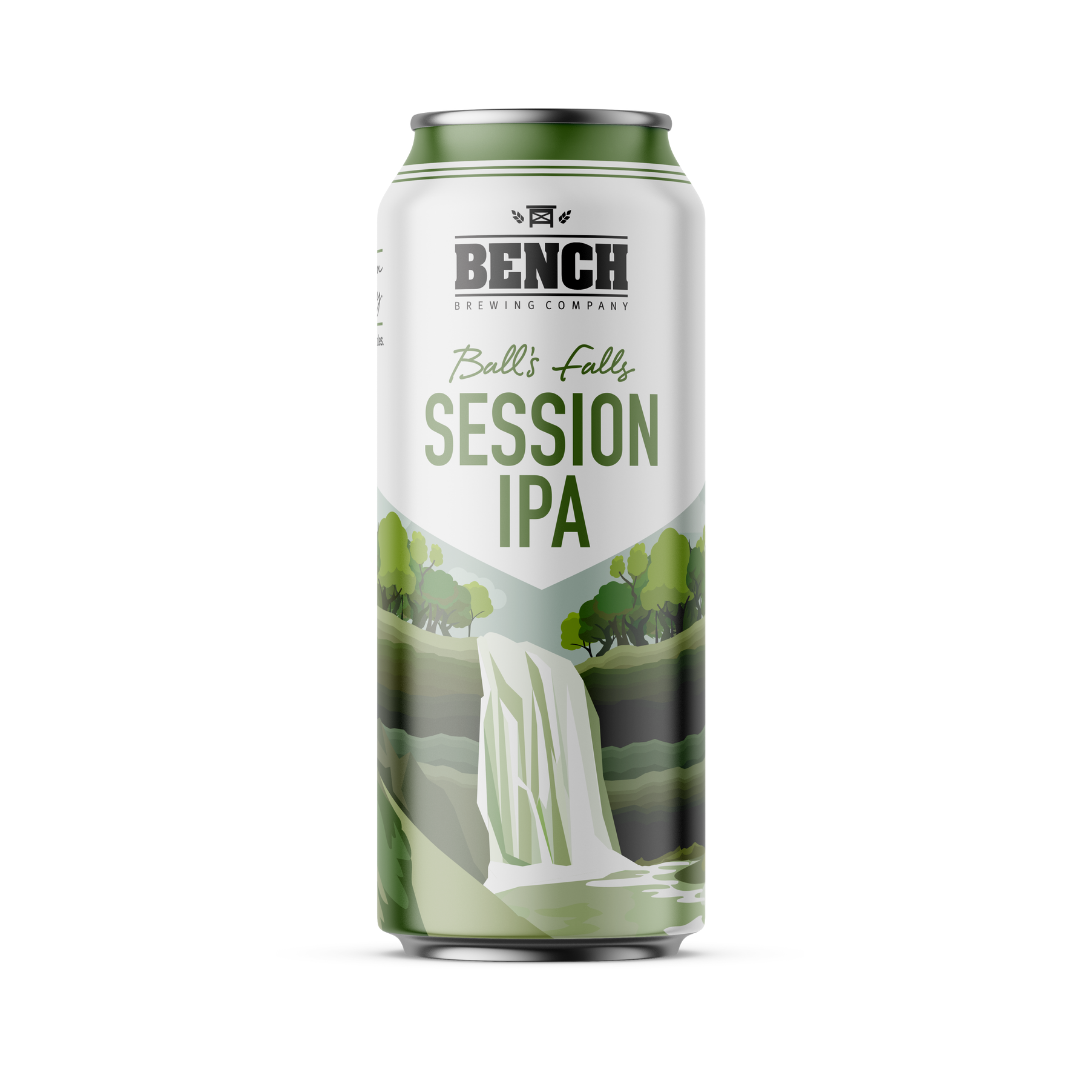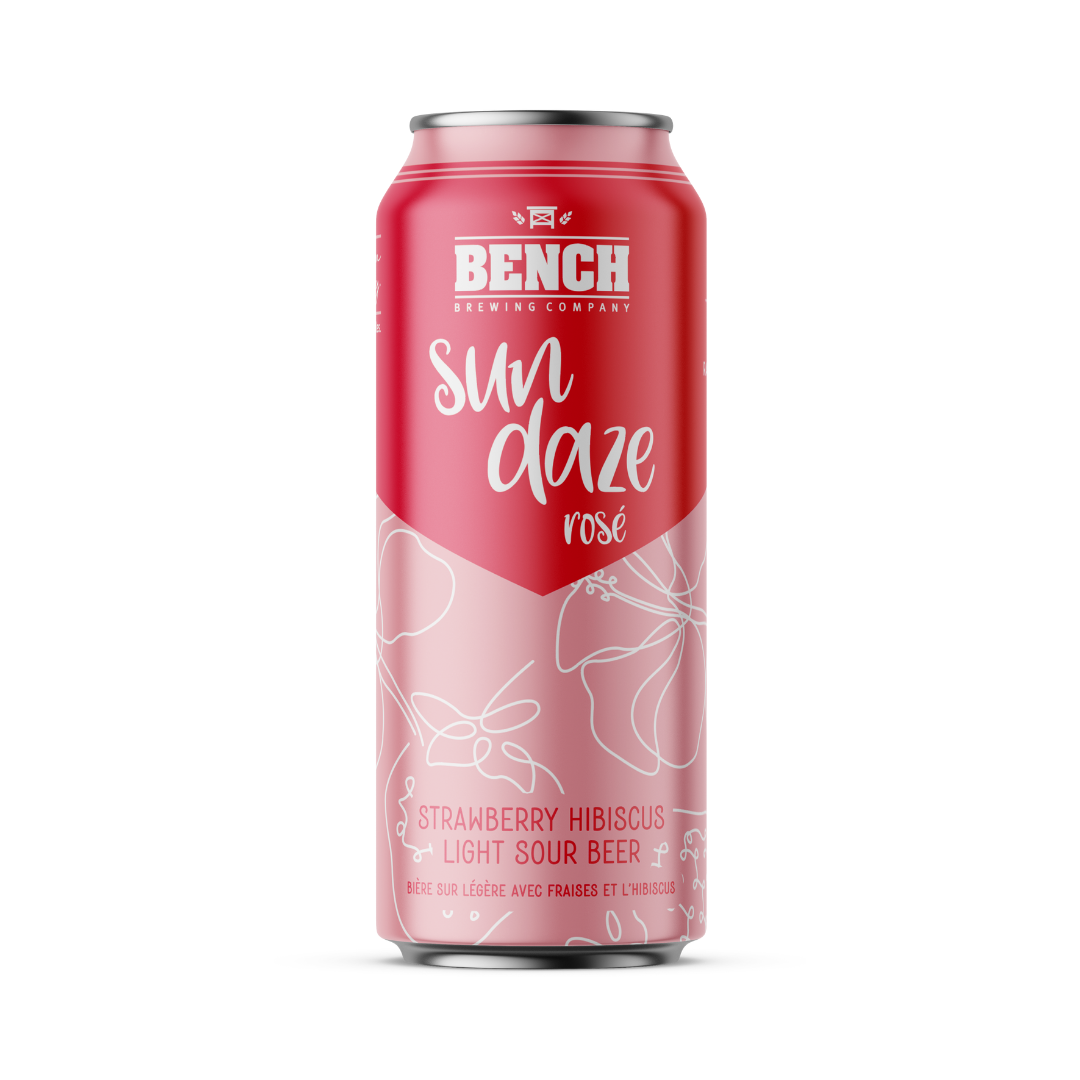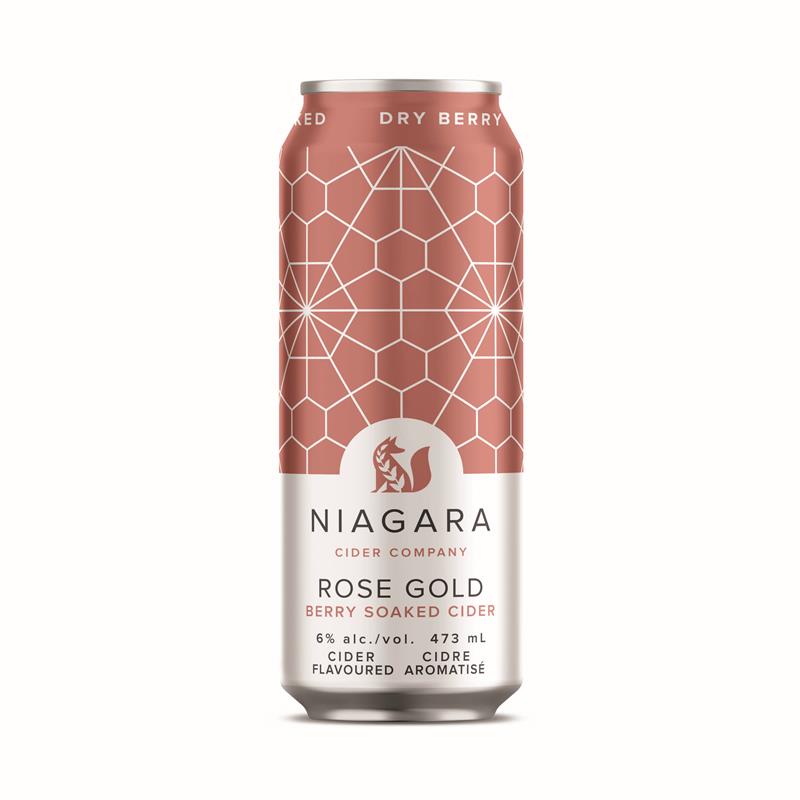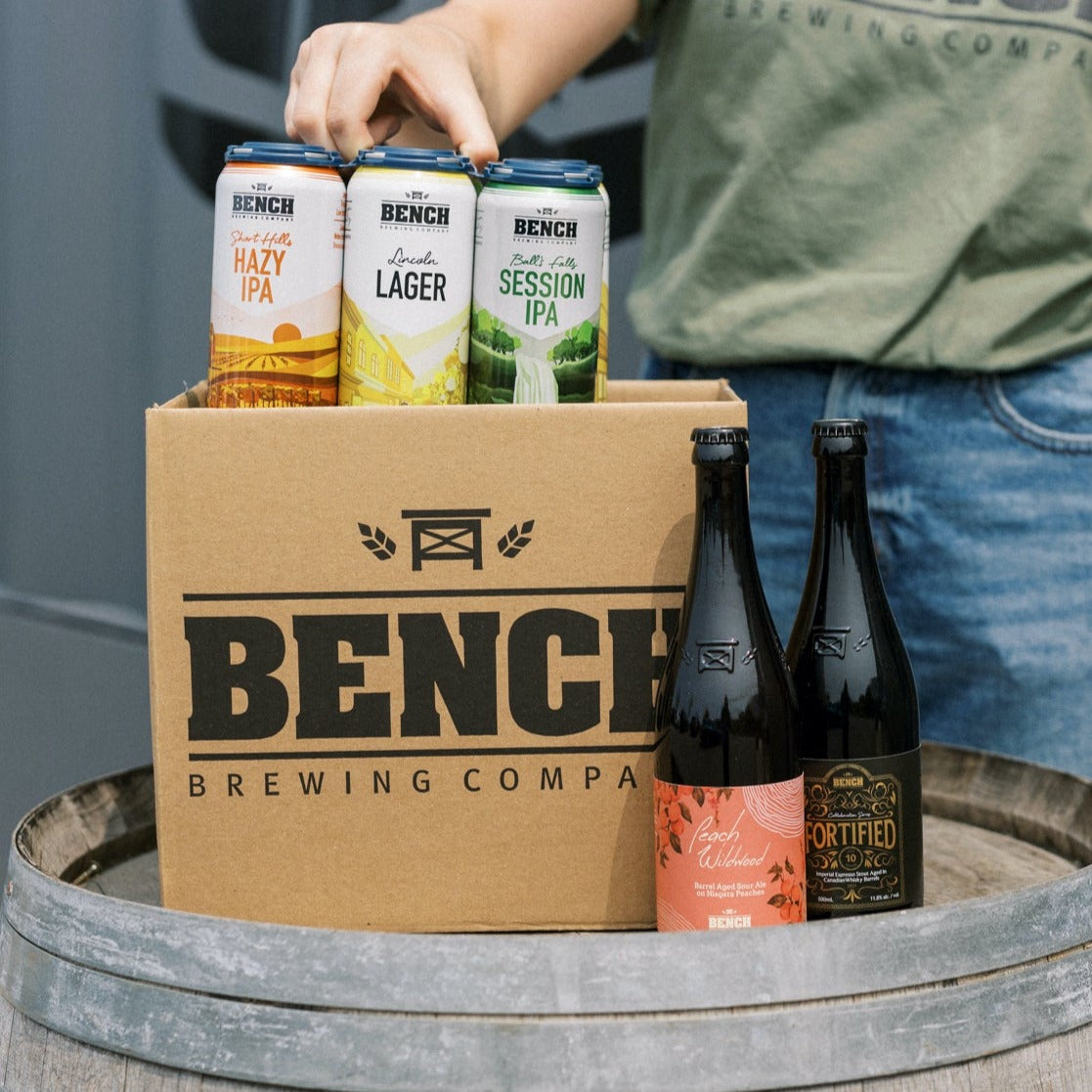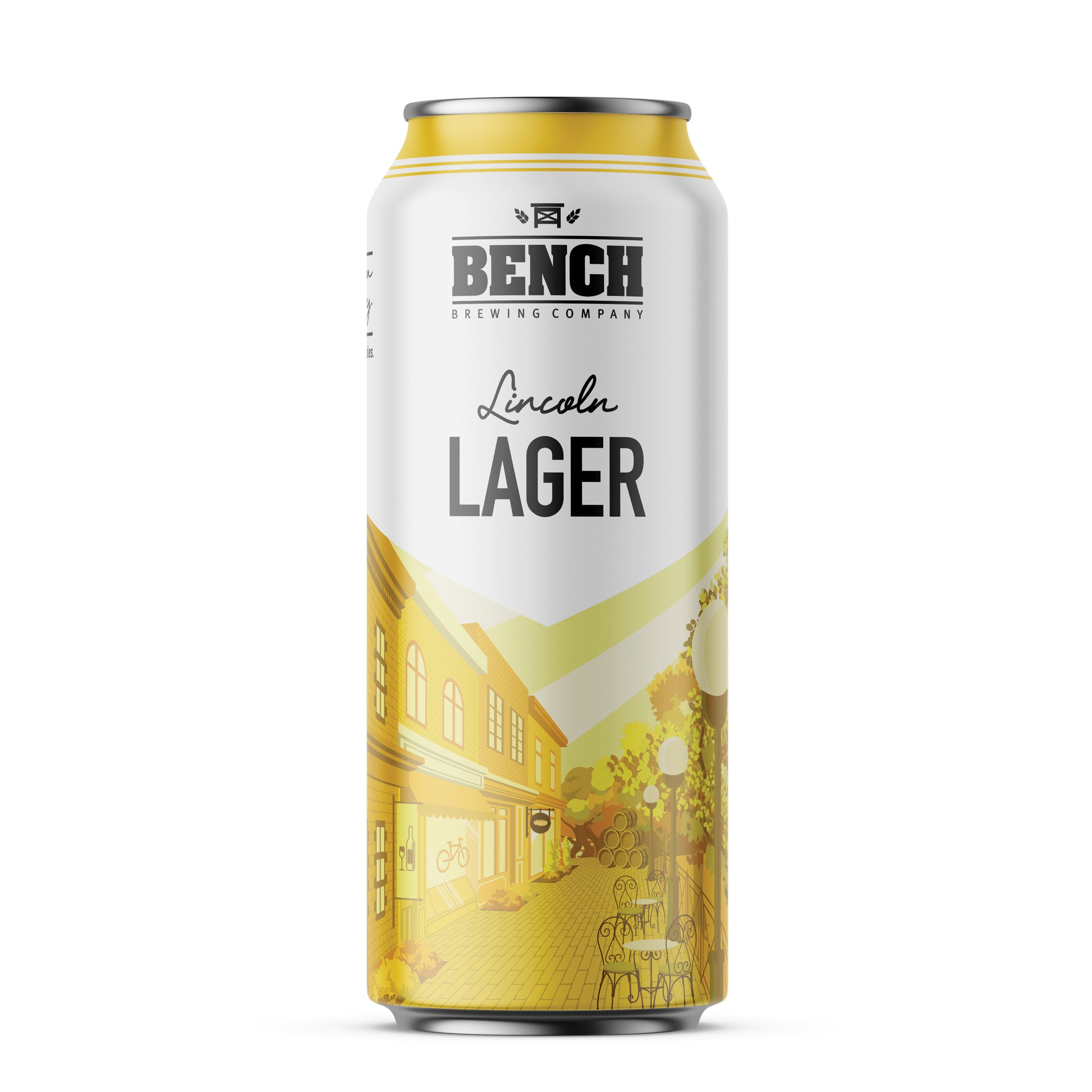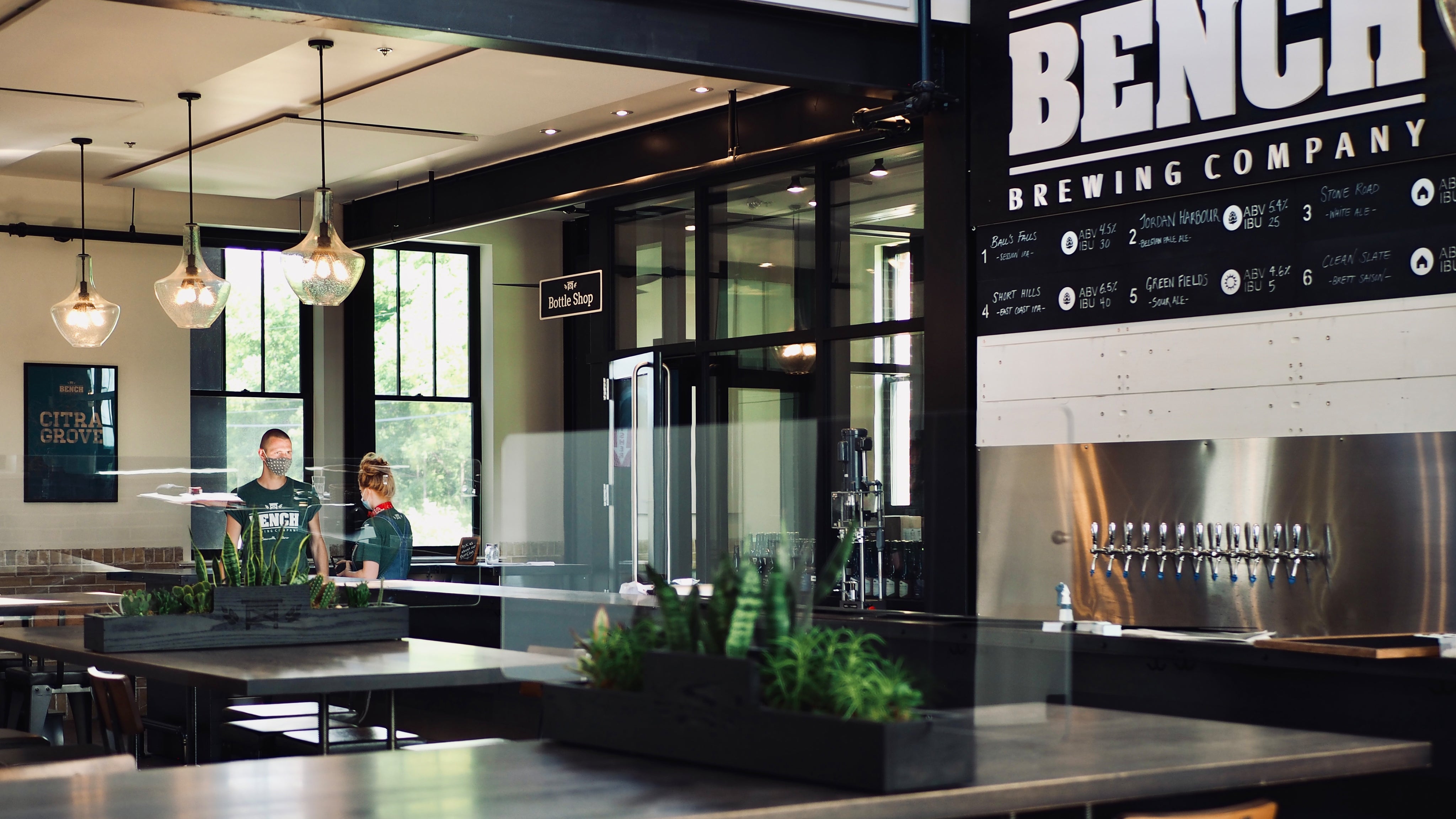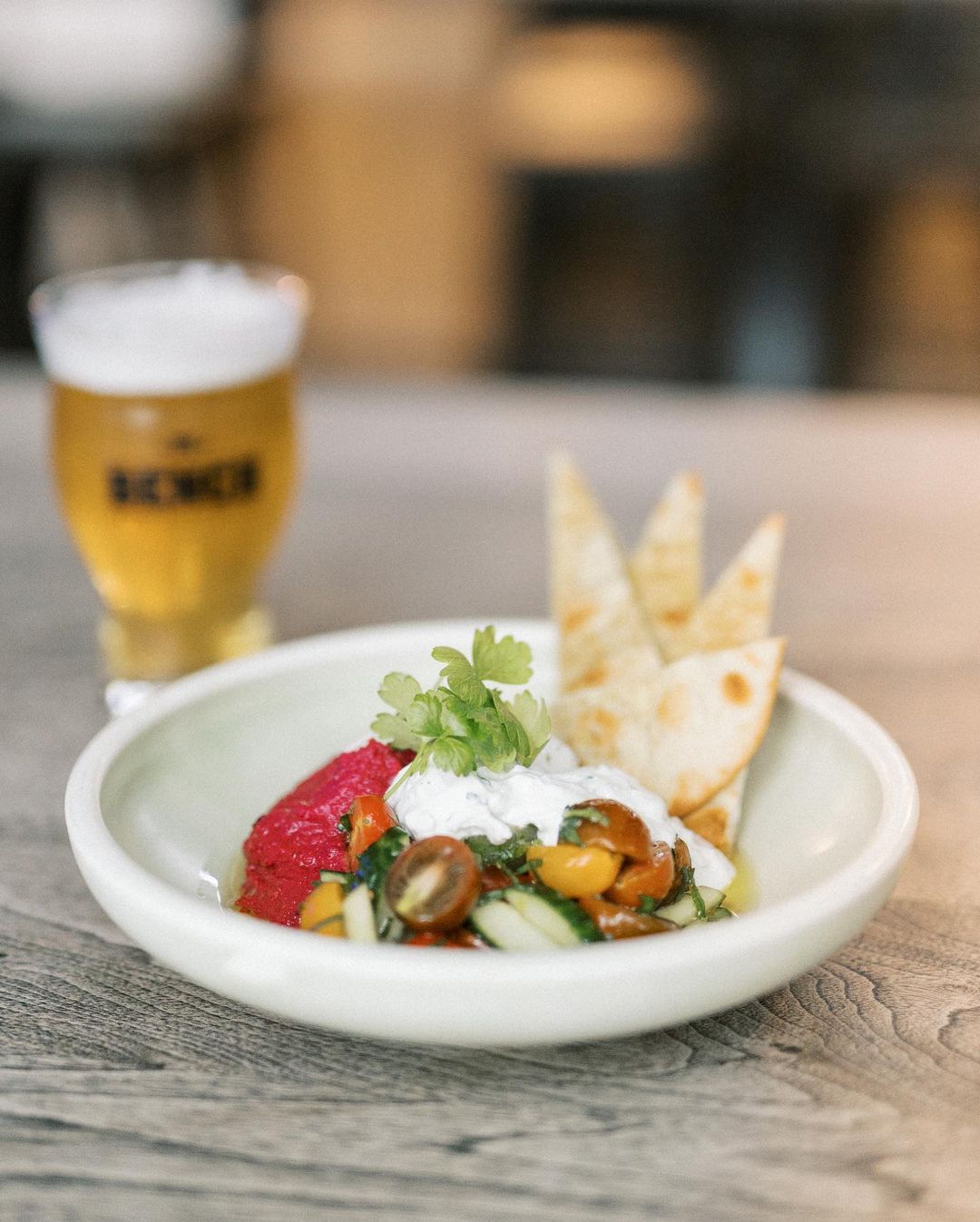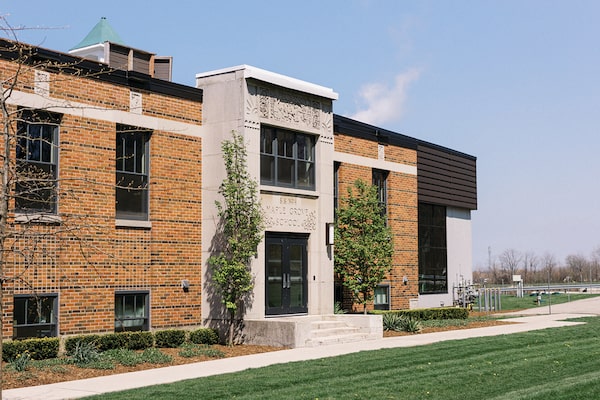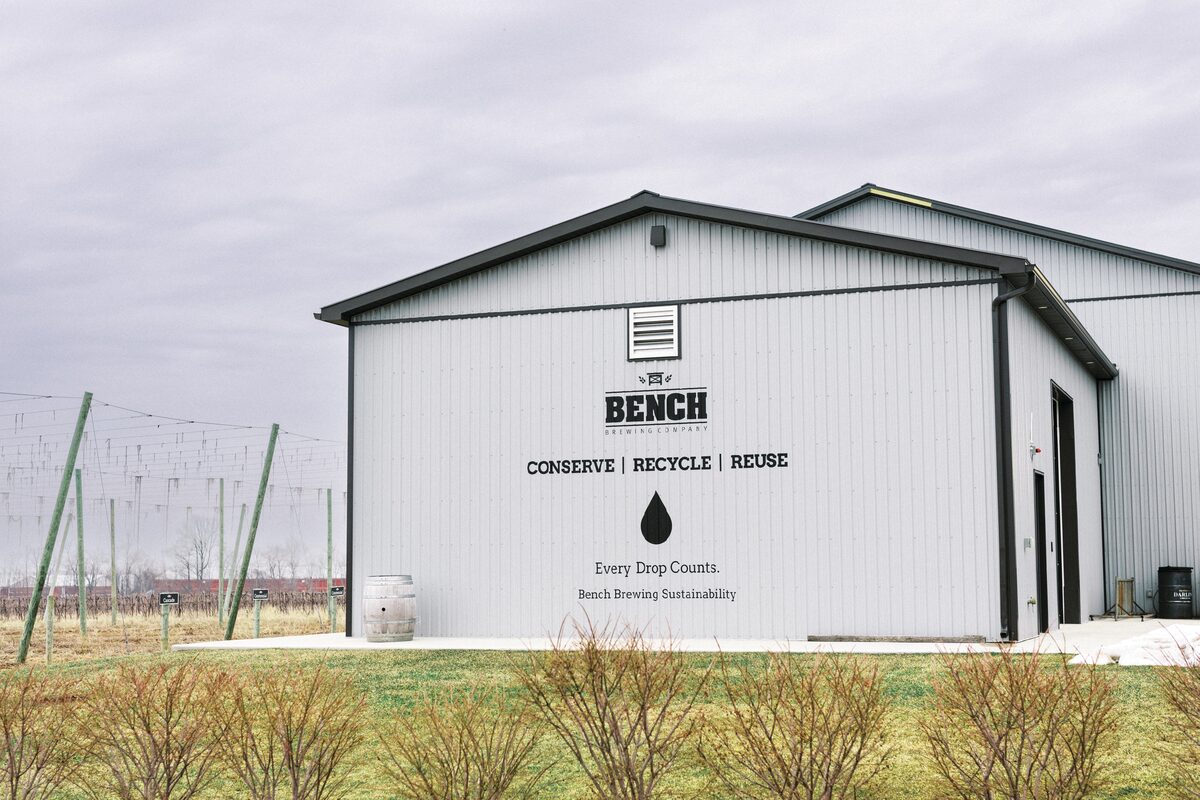
Bench Brewing offers breweries a blueprint for going green
The Niagara Benchlands brewery has prioritized sustainability from the very beginning. Here’s how
His kids are going to laugh at him for saying this, but nothing gives Matt Giffen a thrill quite like irrigation. Specifically, the drip system that waters the three acres of hops and 12 acres of apples that grow in the fields around Bench Brewing, the independent brewery he founded in 2018. What makes it so exciting? All that water – eight to 10 million litres per year – is re-purposed wastewater from the brewing process that’s been purified. The organic matter that’s removed as part of that process, mostly hops and malt, also gets a second life as fertilizer.
“Beer is water-intensive,” explains Giffen. “And to repurpose that in agriculture, as an example, is just a great way of closing that circle.”
When Giffen was planning to open Bench Brewing, he began with a reverence for place. The facility is located in Lincoln. Situated right in the heart of the lush Niagara Benchlands, the town is home to picturesque villages and verdant vineyards and orchards.
“We have neighbours on either side of us who have been here for 225 years,” says Giffen, who had previously grown grapes in the area. “Generations of their families have depended on this land to continue to thrive through sustainable practices. Talk about quintessential mentors for being stewards of the land.”
Sustainability was a core Bench value from the very beginning, built into the foundations of the operation. Literally: Its tap and tasting room is in the converted Maple Grove Public School, a heritage building that held tremendous sentimental value to the community around it.
They’ve since converted an old stone church, also located on the property, into an event space. As Giffen says, “The most sustainable building you can build is the one that’s already built.”
The Bench team’s commitment to sustainability was so innate, in fact, that they didn’t shout their sustainability credentials from the rooftop until one of their lenders not-so-gently nudged Giffen.
“One of our finance partners said, ‘You’re doing all this stuff – you’re B Corp certified, you have a zero-waste water footprint and you’re carbon neutral and you’re not telling anyone? What are you, an idiot?’” says Giffen.
These days, he’s more than happy to show off the daily sustainability work they’re doing at Bench Brewery: the spent grain that goes to feed livestock, the tanker that goes straight from their facility to apply fertilizer, the retention pond that stores purified water when it’s not needed for irrigation, fed by a pipe that goes under a neighbour’s property.
On the carbon neutrality front, which became a real focus as they worked to become a certified B Corporation in 2020, this work encompasses everything from encouraging people to carpool to work to buying carbon offset credits to insulating pipes, putting motion sensors on their lights and fixing a leak in one of their cold storage units. (Not-so-fun fact: Refrigerants are one of the worst greenhouse gas emissions.)
“We cut our emissions by 60 per cent from year one to year two, and then we brought it down another five per cent in 2021, and that’s with increasing volumes,” says Giffen, who’s eyeing EVs for the sales team, and would use solar panels if the building’s roof supported them.
Bench also does what is called “farmhouse style brewing,” which is inspired by the way that ye olde Belgian brewers would get the majority of their supplies – water, barrels, fruit, malt – from within five kilometers of their brewery.
“I love that style of brewing,” says Giffen, who fell in love with Belgian beer when he lived overseas. “And I just really thought there’s not a better place in Niagara than the town of Lincoln to create that farm-style aspect.”
All their barrels are from neighbouring wineries, and they use a coolship – essentially a shallow open vat for fermentation – which requires you to open the windows at night to bring in airborne yeast. “It really is a terroir of beer, because that yeast would be different than what’s outside of your window right now,” says Giffen, noting that the cherries, peaches, plums and other fruit they use are also from producers located within five kilometres of their brewery.
It is, Giffen emphasizes, a team effort, and one that requires authentic commitment, and not just lip service.
“It is a journey that happens day by day,” he says. “All of our decisions are made with the environment in mind.”
- Choosing a selection results in a full page refresh.
